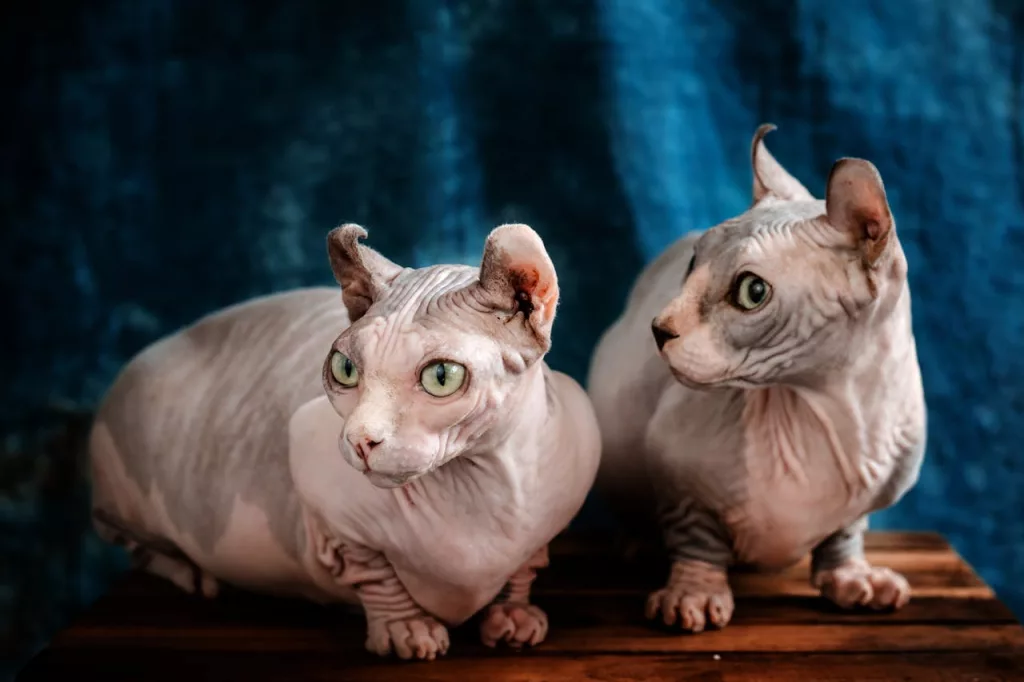Hairless pets, such as Sphynx cats, Chinese Crested dogs, and certain hairless rodent breeds, are unique and captivating companions. Their lack of fur gives them a striking appearance, but it also comes with specific care requirements to ensure their health and happiness. If you’re a proud owner of a hairless pet or considering adopting one, this guide will provide you with essential tips for their care.
1. Keep Their Skin Healthy
Hairless pets have exposed skin, making them prone to dryness, irritation, and sunburn. Proper skin care is a cornerstone of their well-being.
- Moisturize regularly: Use pet-safe moisturizers to prevent dryness and flaking. Avoid human products, which may contain harmful ingredients.
- Bathe gently: Hairless pets need regular baths to remove excess oils. Use mild, hypoallergenic shampoos designed for pets, and rinse thoroughly to prevent residue buildup.
- Protect from the sun: Apply pet-safe sunscreen if your hairless companion will be exposed to direct sunlight for extended periods.
2. Maintain Comfortable Temperatures
Without fur, hairless pets struggle to regulate their body temperature. They can easily become too cold or too hot.
- Provide warmth: Keep your home warm, especially during colder months. Consider cozy pet sweaters or blankets for added comfort.
- Avoid overheating: In hot weather, ensure your pet has access to cool, shaded areas and plenty of water. Avoid exposing them to direct sunlight for too long.
3. Feed a Nutrient-Rich Diet
A proper diet is essential to support the unique needs of hairless pets.
- High-calorie diets: Hairless animals often have higher metabolic rates to maintain their body temperature. Ensure their diet meets these energy demands.
- Quality food: Opt for high-quality, balanced pet food that supports skin health and overall well-being.
- Hydration: Always provide fresh, clean water to keep your pet hydrated and support their skin’s elasticity.
4. Clean Ears and Nails Regularly
Hairless pets may accumulate more dirt and wax in their ears and on their nails, requiring extra attention.
- Ear cleaning: Check their ears weekly and clean them with a vet-recommended solution to prevent infections or blockages.
- Nail trimming: Without fur to buffer scratches, long nails can cause accidental skin damage. Trim their nails regularly and carefully.
5. Create a Cozy Environment
Hairless pets are more sensitive to their surroundings and need a comfortable, safe space.
- Soft bedding: Provide soft, plush bedding to protect their delicate skin from rough surfaces.
- Scratch protection: If you own a hairless cat, ensure scratching posts are gentle to prevent abrasions.
- Hygiene: Regularly wash their bedding to prevent bacteria buildup, which can irritate their skin.
6. Monitor for Skin Issues
Hairless pets are more prone to skin conditions, so regular checks are vital.
- Look for redness or sores: Inspect their skin for any signs of irritation, rashes, or injuries.
- Watch for infections: Be vigilant for pimples or other unusual changes, as these can indicate infections.
- Consult a vet: If you notice anything abnormal, seek veterinary advice promptly to address potential issues.
7. Provide Plenty of Love and Socialization
Hairless pets are often known for their affectionate and social nature. Engage with them daily to nurture their emotional health.
- Playtime: Offer interactive toys to keep them active and mentally stimulated.
- Cuddles: Hairless pets often love snuggling for warmth and comfort, strengthening your bond.
8. Regular Veterinary Checkups
Routine vet visits are essential to ensure your hairless pet stays healthy.
- Skin-specific care: A vet can recommend products or routines tailored to your pet’s skin type.
- Preventive care: Keep up with vaccinations and checkups to detect any health concerns early.
Final Thoughts
Caring for a hairless pet may require a bit of extra effort, but the rewards are immeasurable. Their unique appearance is matched by their loving personalities, making them a joy to have in your life. By focusing on their specific needs—skin care, temperature regulation, nutrition, and hygiene—you can ensure your hairless companion lives a happy, healthy life.

